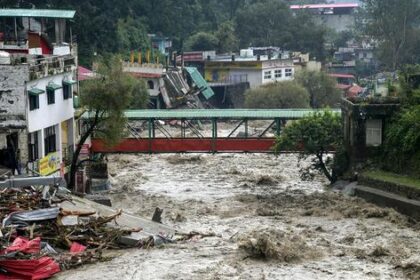**Arpit Sharma’s remarks on Nepali protests lead to legal action amid rising tensions over free speech.**
<p>The Uttar Pradesh Police have initiated a sedition case against Arpit Sharma, a content creator, under Section 152 of the Bharatiya Nyaya Sanhita. This action stems from a video he posted regarding the recent protests in Nepal, which have been fueled by widespread discontent over corruption and misgovernance.</p> <p>Section 152 of the Bharatiya Nyaya Sanhita is focused on acts that threaten the sovereignty, unity, and integrity of India. Critics of this legal provision have characterized it as a modern iteration of the colonial-era sedition law, raising concerns about its implications for free speech and dissent.</p> <p>The first information report (FIR) against Sharma was registered on Thursday.
It accuses him of using the backdrop of the protests in Nepal to incite violence in India and undermine national integrity. The protests in Nepal escalated earlier this week, initially sparked by the government’s ban on 26 social media platforms and subsequently growing into a broader movement against alleged corruption.</p> <p>These demonstrations have been notably driven by young people, often referred to as “Gen Z,” a demographic encompassing individuals born from the late 1990s to 2010. In his video, which was posted on X shortly after the protests commenced, Sharma expressed admiration for the youth of Nepal.
He questioned why young Indians were not similarly mobilizing against issues like corruption and hate speech.</p> <p>Sharma has since defended his video, stating, “When I made the video, the protests were peaceful… at no point was I inciting people.” Despite his claims of non-incitement, the legal repercussions have been severe. Following the filing of the FIR, Sharma has reported receiving death threats online. He also revealed that personal information about his workplace in England, where he is employed as a chartered accountant, has been disclosed, placing both him and his family in a precarious position.</p> <p>The situation reflects broader tensions regarding free expression in India, particularly in the context of social media and digital discourse.
As the protests in Nepal gain international attention, the contrasting responses to similar sentiments within India raise questions about the state of democratic freedoms and the boundaries of permissible speech.</p> <p>Arpit Sharma’s case highlights the potential dangers faced by individuals who voice dissenting opinions, particularly when they draw parallels between domestic and international movements. The sedition charge against him serves as a reminder of the ongoing challenges related to freedom of expression in contemporary Indian society.</p>
Officials indicated further operational details may follow.








